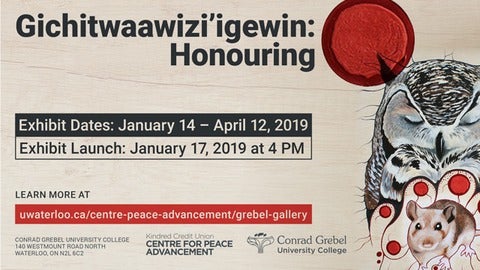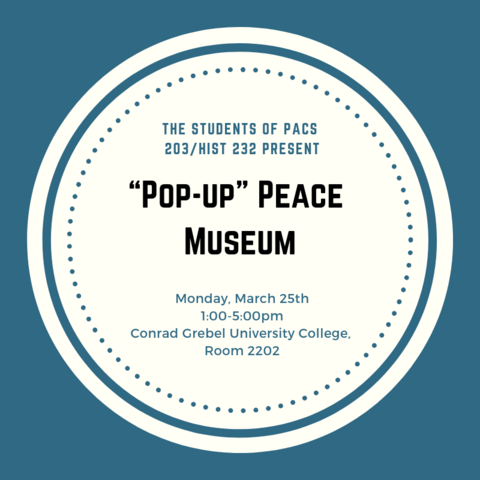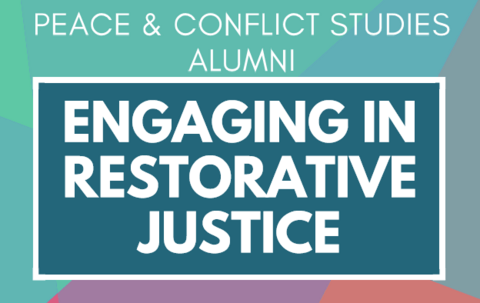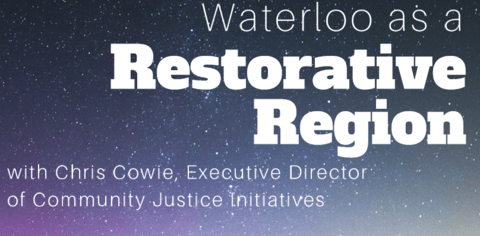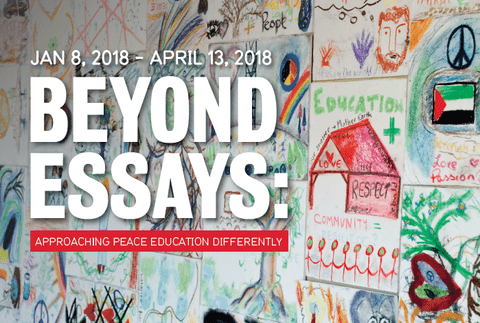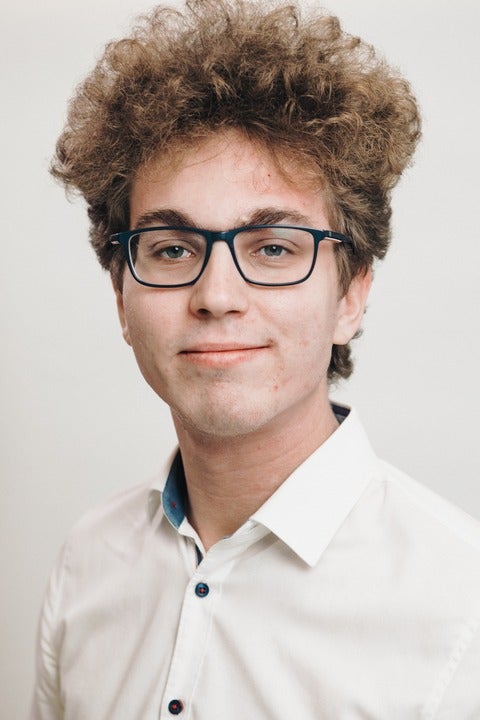In this exhibit, artist Catherine Dallaire re-examines the original Indigenous values in animal and plant life that are often vilified by contemporary Western settler culture. Building understanding between Indigenous and non-Indigenous worldviews is an important step towards peace and conciliation in the Canadian context. Creating space for Indigenous wisdom to guide culture and policy is an integral part of building peace and justice.
Current graduate students
“Pop-up” Peace Museum – Presented by the students of PACS 203/HIST 232 (A History of Peace Movements), the Pop-up Peace Museum features 14 exhibits highlighting a wide range of peace and justice movements from the 20th and 21st centuries. Come and visit on Monday, March 25 from 1:00pm to 5:00pm in Room #2202 at Conrad Grebel University College (directly across from Grebel’s front reception desk).
International criminal prosecution is seen by some as an essential tool to end impunity and reduce the extraordinary impact that war crimes and crimes against humanity have on civilians who are trapped in war. Others criticize international prosecution as simply another form of Westerners attempting to impose their view of justice on a skeptical world while ignoring and silencing the voices of the victims and the communities from which they come.
This event is part of the Intercollegiate Peace Fellowship Conference, a three day conference that explores the meaning, history, and practice of restorative justice.
This event is part of the Intercollegiate Peace Fellowship Conference, a three day conference that explores the meaning, history, and practice of restorative justice.
This is a public event that is free to attend and open to all. This event is available with American Sign Language (ASL) interpretation.
We welcome family and friends to celebrate with graduates from Conrad Grebel University College and the University of Waterloo on Sunday, April 15, 2018, 2:00 p.m. in the Humanities Theatre on the University of Waterloo campus.
The Intercollegiate Peace Fellowship (ICPF) conference began in 1948 at Goshen College and represents the peace societies and other peace and justice interested students of Mennonite and affiliated colleges/universities in Canada and the United States.
Conrad Grebel University College’s Peace and Conflict Studies program (PACS) at the University of Waterloo was the first peace studies program in Canada, and has remained a leader in peace education for 40 years. With PACS’ innovative approach to learning, students can choose arts-based assignment options in many courses.
The Master of Peace and Conflict Studies Program will be hosting an information session to provide students the opportunity to learn more about our program.
Robby Szolgyemy: On Conflict and Cultural Awareness
Robby Szolgyemy is finishing his 4A term as a Peace and Conflict Studies (PACS) and Anthropology student, but when he began studying at the University of Waterloo, PACS was not on his radar at all. It was not until he was searching for electives to fill his first-year schedule that the program caught his eye. He was drawn to the seemingly straightforward program name that described exactly what they would be studying: peace, and conflict. Robby enrolled in PACS, hoping that, if anything, he might be able to glean some wisdom from deconstructing past conflicts in his life. However, as he started taking courses like PACS 323: Negotiation Theories and Strategies, he was surprised to find just how useful these skills and concepts could be.
Robby quickly picked up Peace and Conflict Studies as his second major and began taking more PACS courses. He was impressed by the applicability of PACS courses to his professional life, especially as a co-op student. Robby has worked in several professional environments where concepts like negotiation and conflict resolution have proven useful.
- Currently on page 1 1
- Next page
